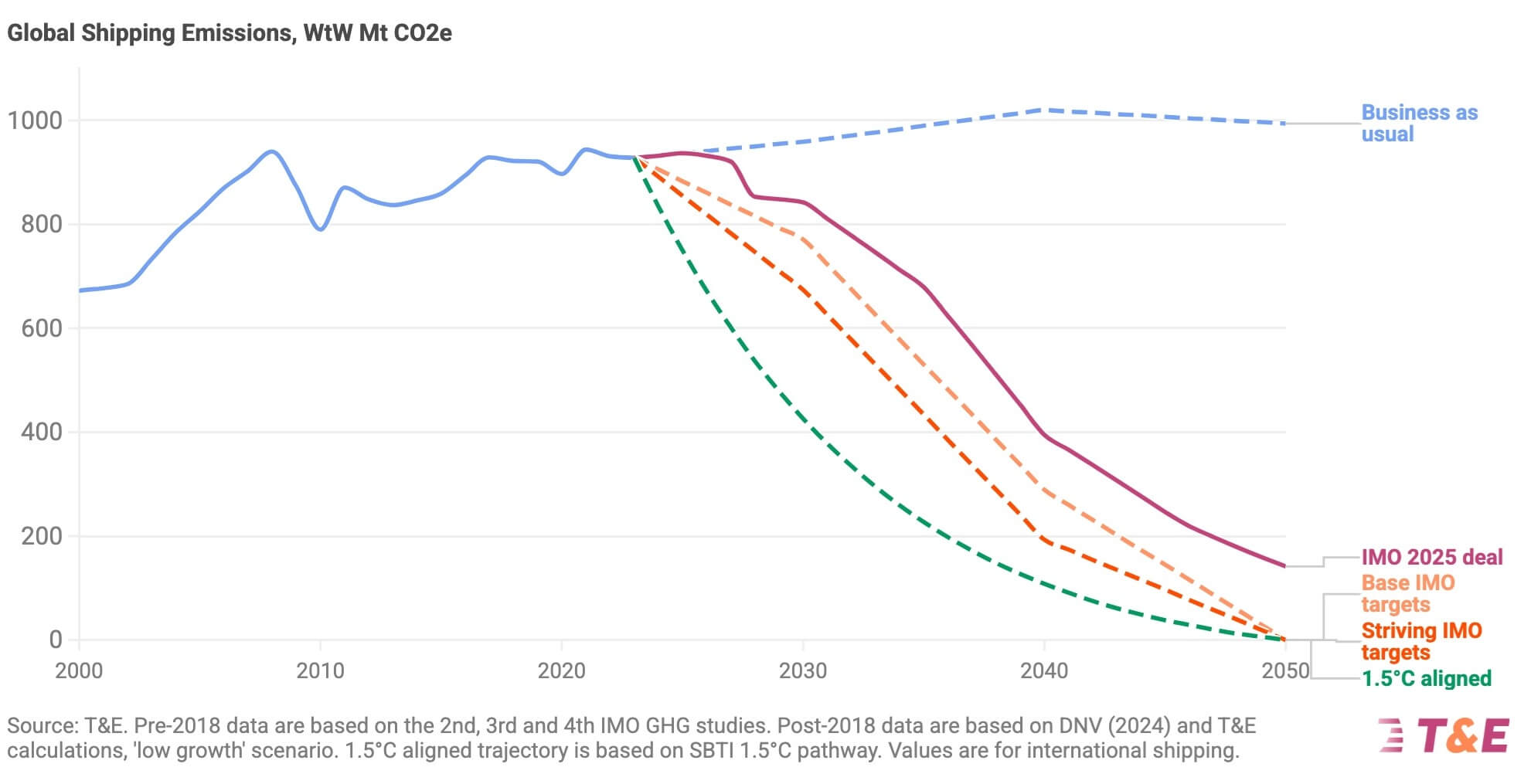Global Carbon Fee for Shipping: A Milestone in Climate Policy
After a decade of discussions, member nations of the International Maritime Organization (IMO) have reached a historic agreement to implement the first global carbon fee for the shipping industry. This marks a significant step towards reducing greenhouse gas emissions and combating climate change on a global scale.
During the Marine Environment Protection Committee’s 83rd meeting, delegates finalized binding targets for reducing shipping’s greenhouse gas emissions. The targets include a 20-30 percent reduction by 2030, a 70-80 percent reduction by 2040, and achieving net-zero emissions by or around 2050.
The agreed-upon measures include a tiered system of fees and compliance levels to incentivize emission reductions. Ships exceeding a maximum level of emissions intensity will face a penalty of $380 per tonne of CO2. Those staying below this intensity standard will still be subject to a fine of $100 per tonne of CO2 for emissions exceeding a second “direct compliance” level. Ships surpassing the direct compliance standard will earn carbon credits for outperforming requirements, which can be banked or sold.
It is important to note that ships under 5,000 gross tons, such as coastal vessels and workboats, are exempt from the carbon fee. Additionally, operators are encouraged to utilize alternative fuels that meet emissions criteria, including first-generation biofuels made from food crops like palm and soybean oil. However, concerns have been raised about the environmental impact of these biofuels due to increased land-clearing for production.
While some climate advocates and industry groups see the fee structure as a positive step, others believe it falls short of compelling a swift transition to high-cost green fuels like methanol and ammonia. An analysis by Transport & Environment (T&E) suggests that the IMO’s schedule will lead to a substantial reduction in emissions from 2030 onwards, though achieving net-zero emissions may extend beyond 2050.

Despite the progress made, critics argue that the level of ambition in the IMO agreement may not be sufficient to meet emission reduction targets or align with a 1.5°C trajectory. The influence of countries like the US and Saudi Arabia, as well as opposition from the Trump administration, has been cited as a hindrance to more ambitious climate measures.
Industry groups have welcomed the IMO agreement as a step in the right direction, recognizing the need for further developments to provide certainty and accelerate the transition to greener shipping practices. The International Chamber of Shipping and World Shipping Council have expressed optimism about the potential for industry investment and a global carbon fee to drive positive change.
Looking ahead, experts warn that without significant revenue from the IMO levy to fund investments in green fuel technologies, national-level capital flows could dictate the winners of the shipping industry’s green transition. There is a call for strong industrial policies to ensure a sustainable and equitable shift towards environmentally friendly shipping practices.

